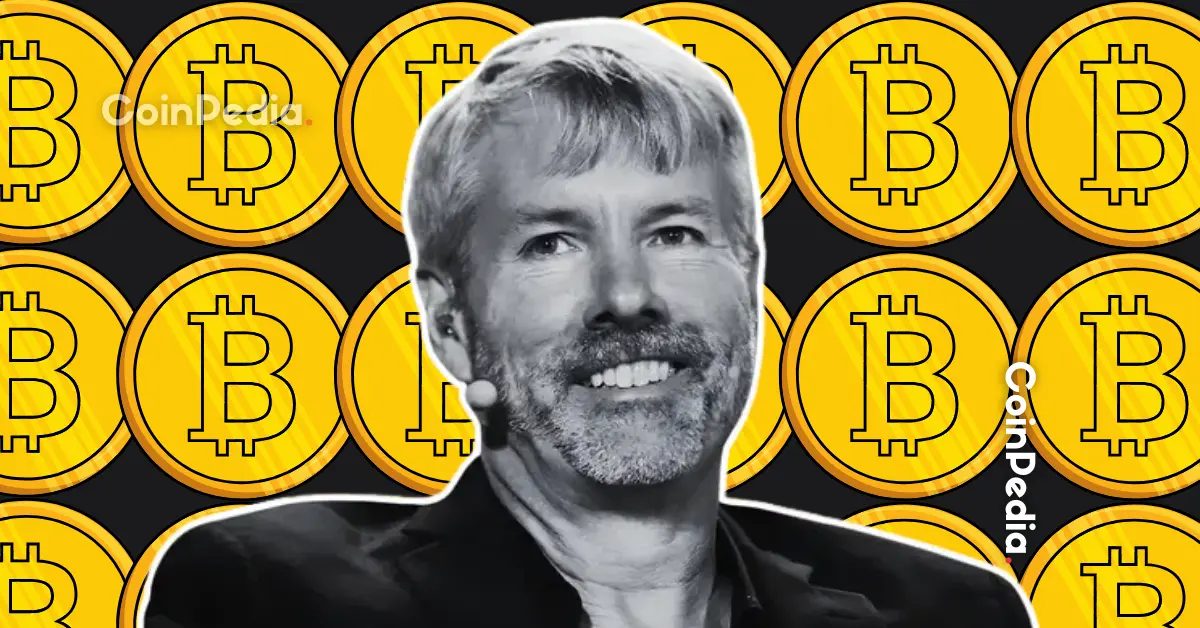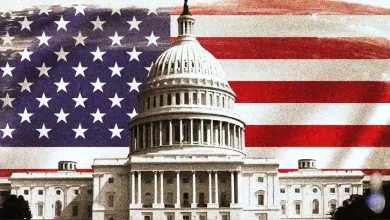
Michael Saylor urges U.S. to adopt Bitcoin as a national digital reserve for future.
Corporate and institutional Bitcoin demand is outpacing miner supply, pushing prices higher rapidly.
Saylor predicts Bitcoin could become a digital gold-backed system supporting global finance long-term.
Michael Saylor, the executive chairman of MicroStrategy and one of Bitcoin’s strongest supporters, is once again urging the U.S. to think bigger about digital assets. Saylor believes the U.S. should treat Bitcoin not just as an investment, but as a national digital reserve.
In a recent CNBC interview, he said Bitcoin could start rising sharply toward the end of 2025 after months of sideways trading.
Bitcoin’s Demand Surging Day-by-Day
Saylor was among a group of crypto leaders who visited Washington last week to advocate for the proposed “Strategic Bitcoin Reserve Bill.” He told policymakers that Bitcoin is more than an investment; it could be the future of money.
“The U.S. should own a large part of cyberspace,” he said.
Saylor explained that, despite Bitcoin’s flat performance over the past week, with prices hovering around $112,000 to $115,000, demand from companies and institutions is skyrocketing.
While miners generate about 450 BTC per day, businesses are buying around 1,755 BTC daily, and ETFs add another 1,430. This extra demand, he believes, could push Bitcoin higher later this year.
Bitcoin as a Corporate Lifeline
Saylor says companies adding Bitcoin to their balance sheets are getting stronger financially.
Around 180 companies are now accumulating it, with ETFs like BlackRock leading the way. MicroStrategy, for example, holds almost 638,985 BTC, the most of any company.
Some companies treat Bitcoin like digital gold, keeping it for the long term. Others use it as a treasury asset instead of cash or stock buybacks. Saylor believes this is like the old gold-backed credit system that powered global finance, but now Bitcoin could play that role in today’s digital world.
Bitcoin: Digital Gold for Centuries
Saylor often compares Bitcoin to gold, but he thinks it can do even more. “The world ran on gold-backed credit for 300 years. Now it will run on digital gold-backed credit for the next 300 years.”
He added that gold has value, but it is not flexible. “You can’t move gold instantly or program it.” “Bitcoin is like gold, but with technology.”
As 2025 comes to an end, he sees Bitcoin not just as a coin to trade, but as a strong base for the future of money.
FAQs
The “Strategic Bitcoin Reserve Bill” is a proposed U.S. law that would treat Bitcoin as a national digital reserve asset, similar to gold. Michael Saylor and other leaders are advocating for it.
Michael Saylor believes that adding Bitcoin to a company’s balance sheet makes it financially stronger. He notes that nearly 180 companies, including MicroStrategy, now use Bitcoin as a treasury asset.
MicroStrategy, led by Michael Saylor, holds almost 638,985 BTC, making it the largest publicly traded corporate holder of Bitcoin. The company continues to acquire more Bitcoin regularly.
Trust with CoinPedia:
CoinPedia has been delivering accurate and timely cryptocurrency and blockchain updates since 2017. All content is created by our expert panel of analysts and journalists, following strict Editorial Guidelines based on E-E-A-T (Experience, Expertise, Authoritativeness, Trustworthiness). Every article is fact-checked against reputable sources to ensure accuracy, transparency, and reliability. Our review policy guarantees unbiased evaluations when recommending exchanges, platforms, or tools. We strive to provide timely updates about everything crypto & blockchain, right from startups to industry majors.
Investment Disclaimer:
All opinions and insights shared represent the author's own views on current market conditions. Please do your own research before making investment decisions. Neither the writer nor the publication assumes responsibility for your financial choices.
Sponsored and Advertisements:
Sponsored content and affiliate links may appear on our site. Advertisements are marked clearly, and our editorial content remains entirely independent from our ad partners.







